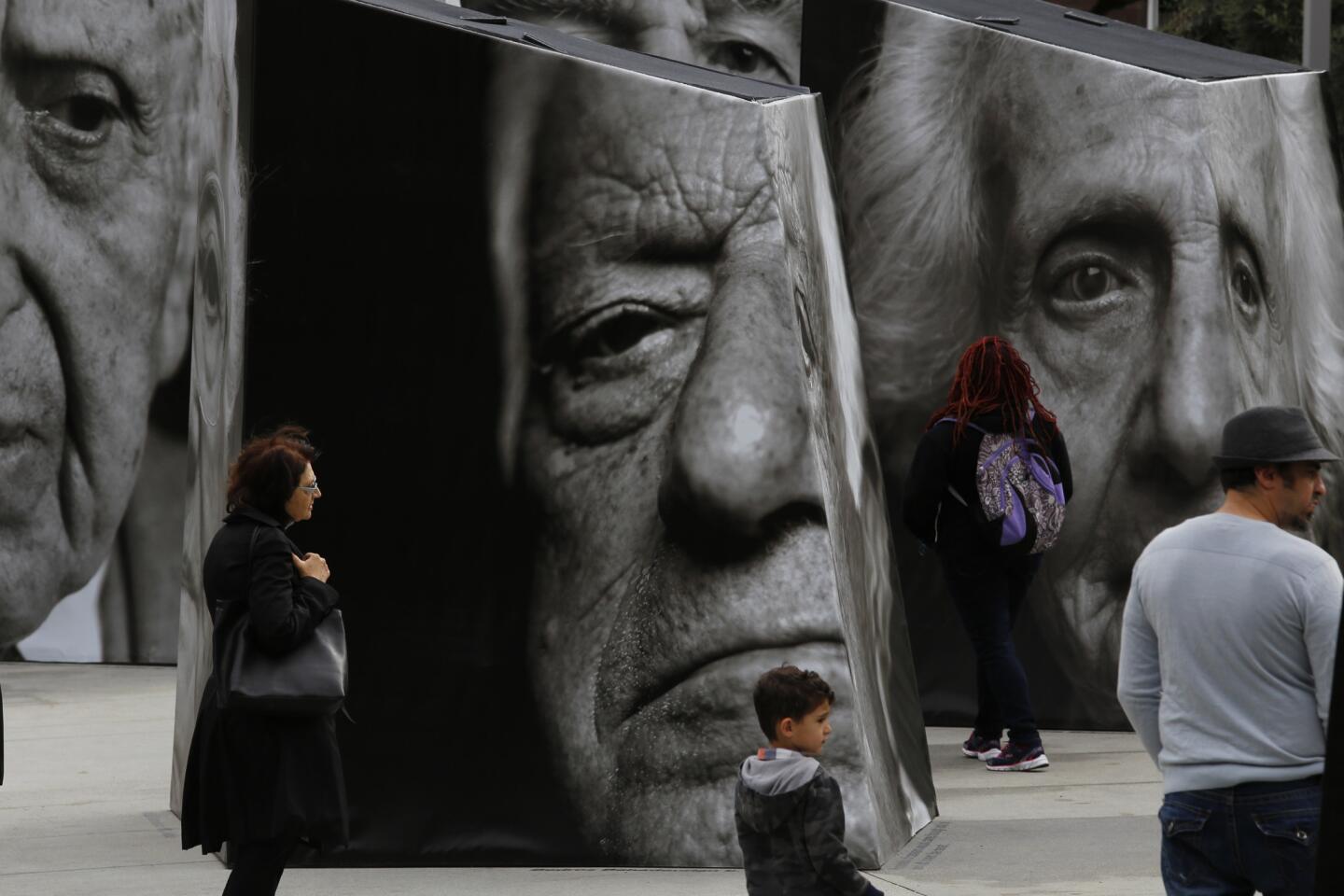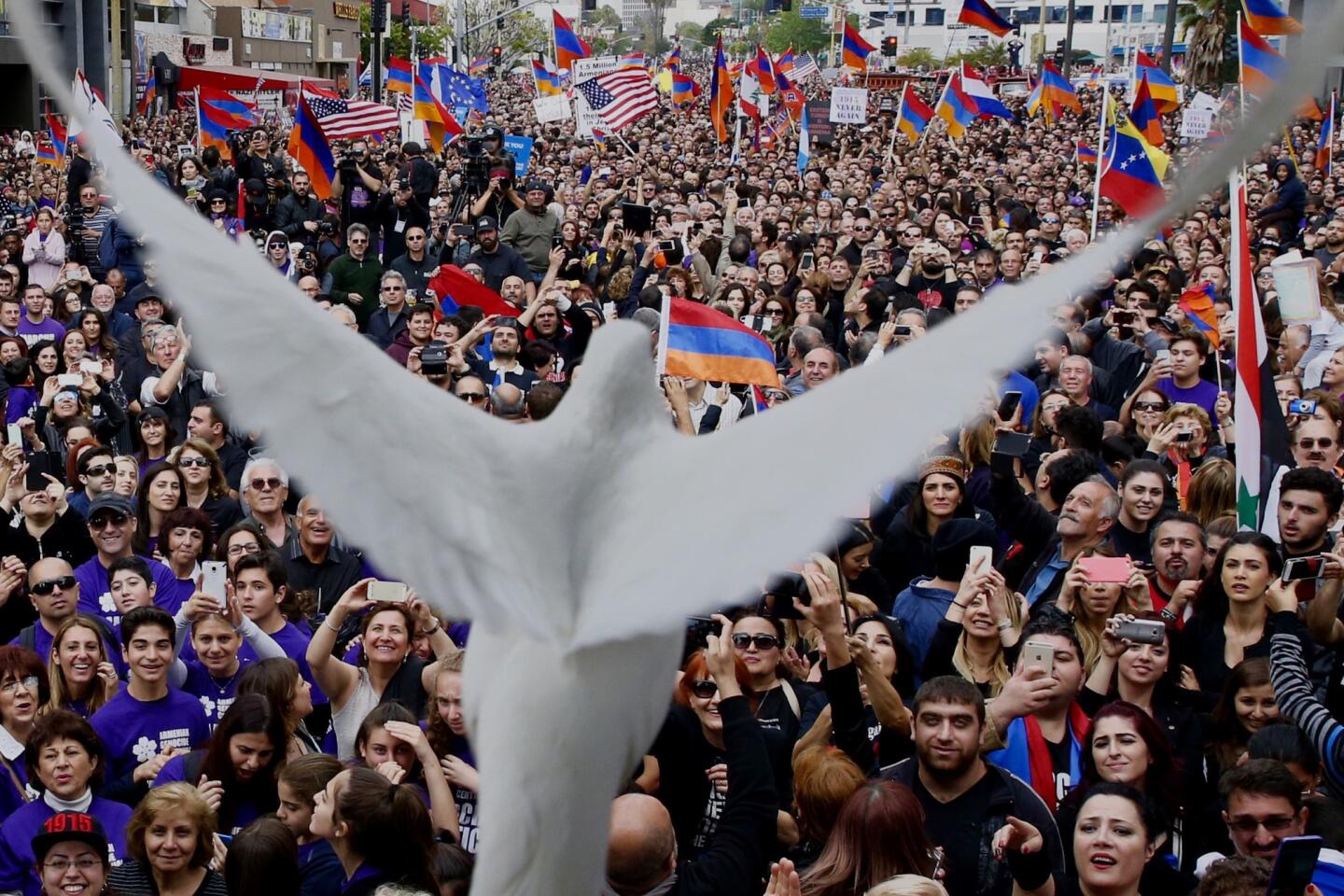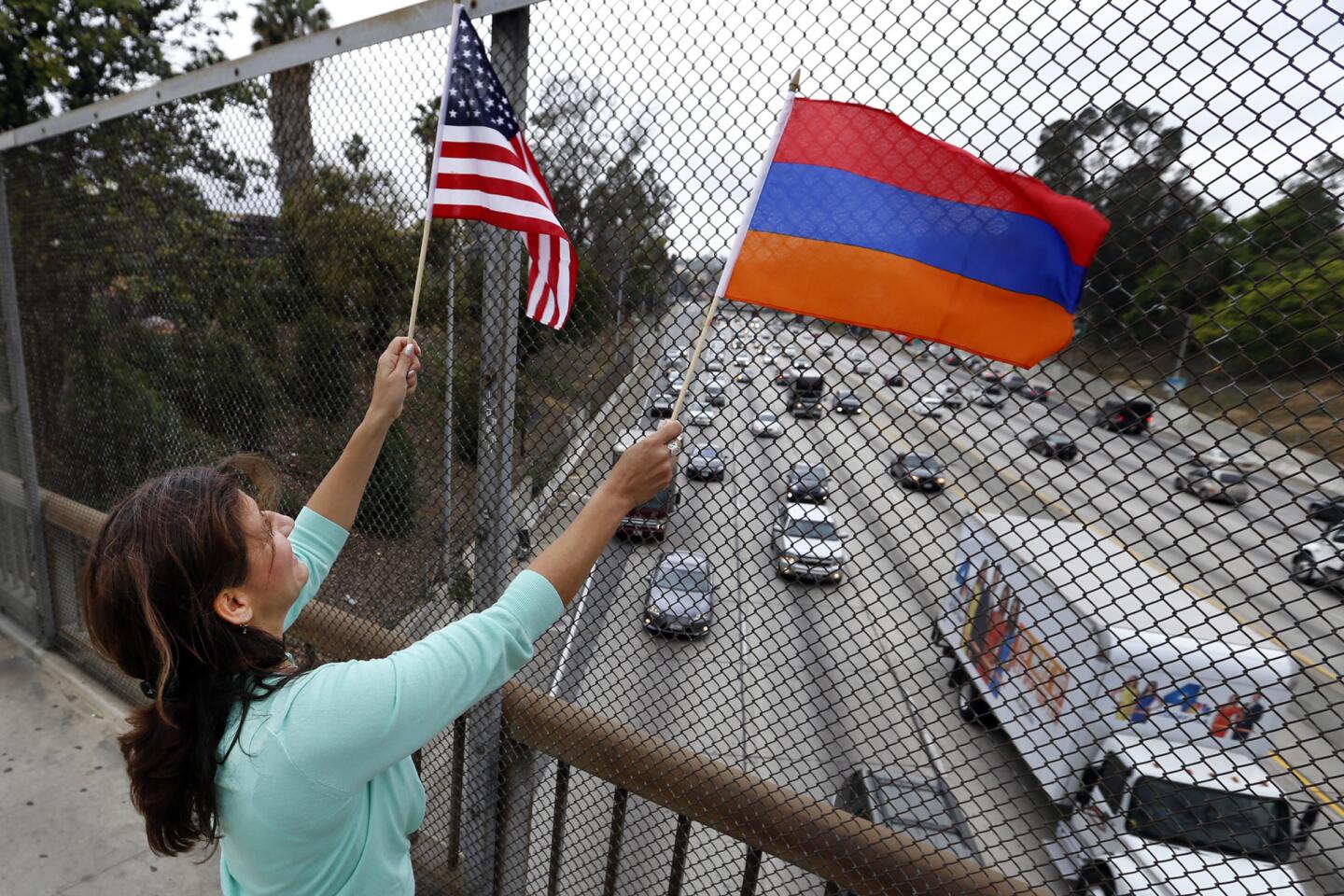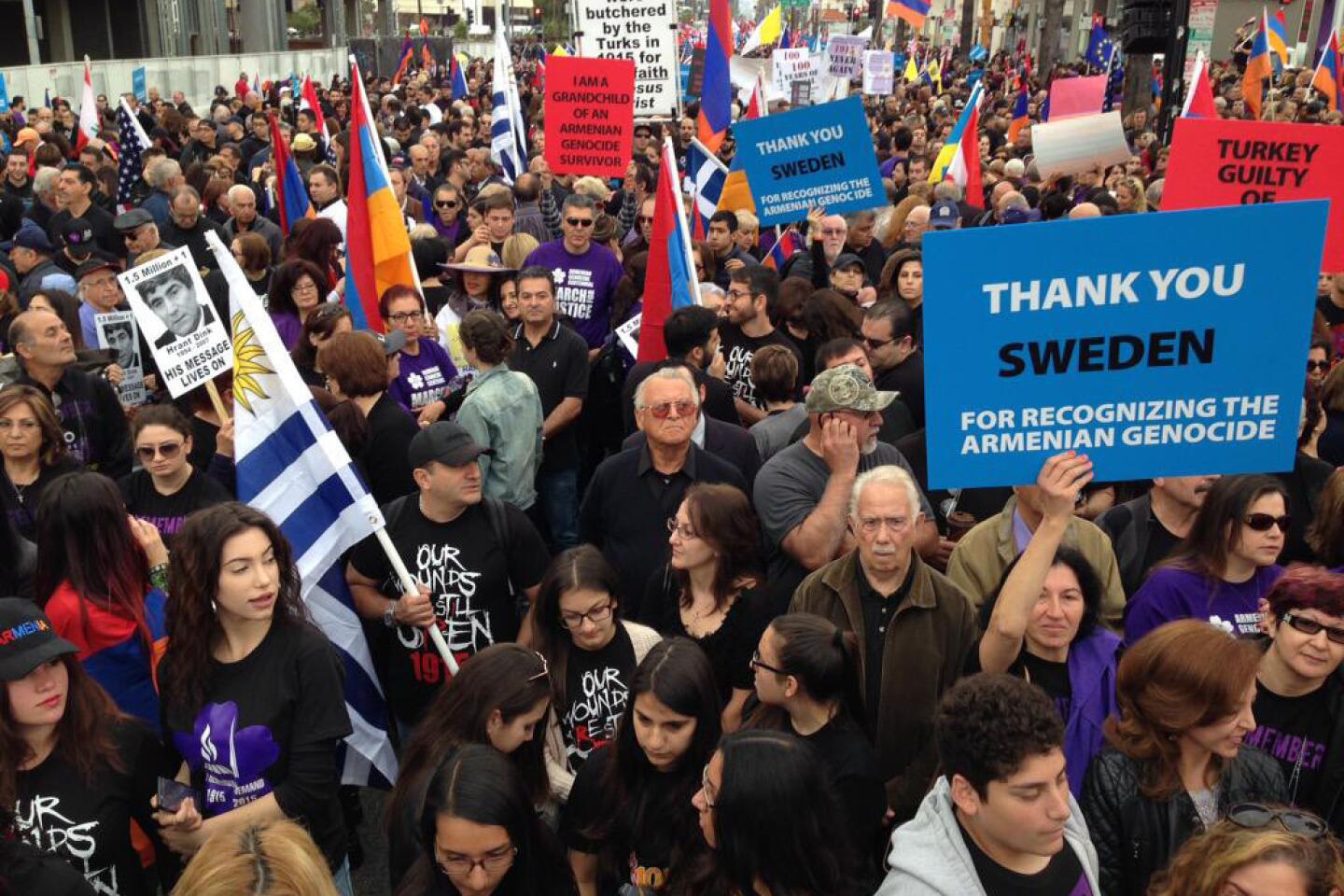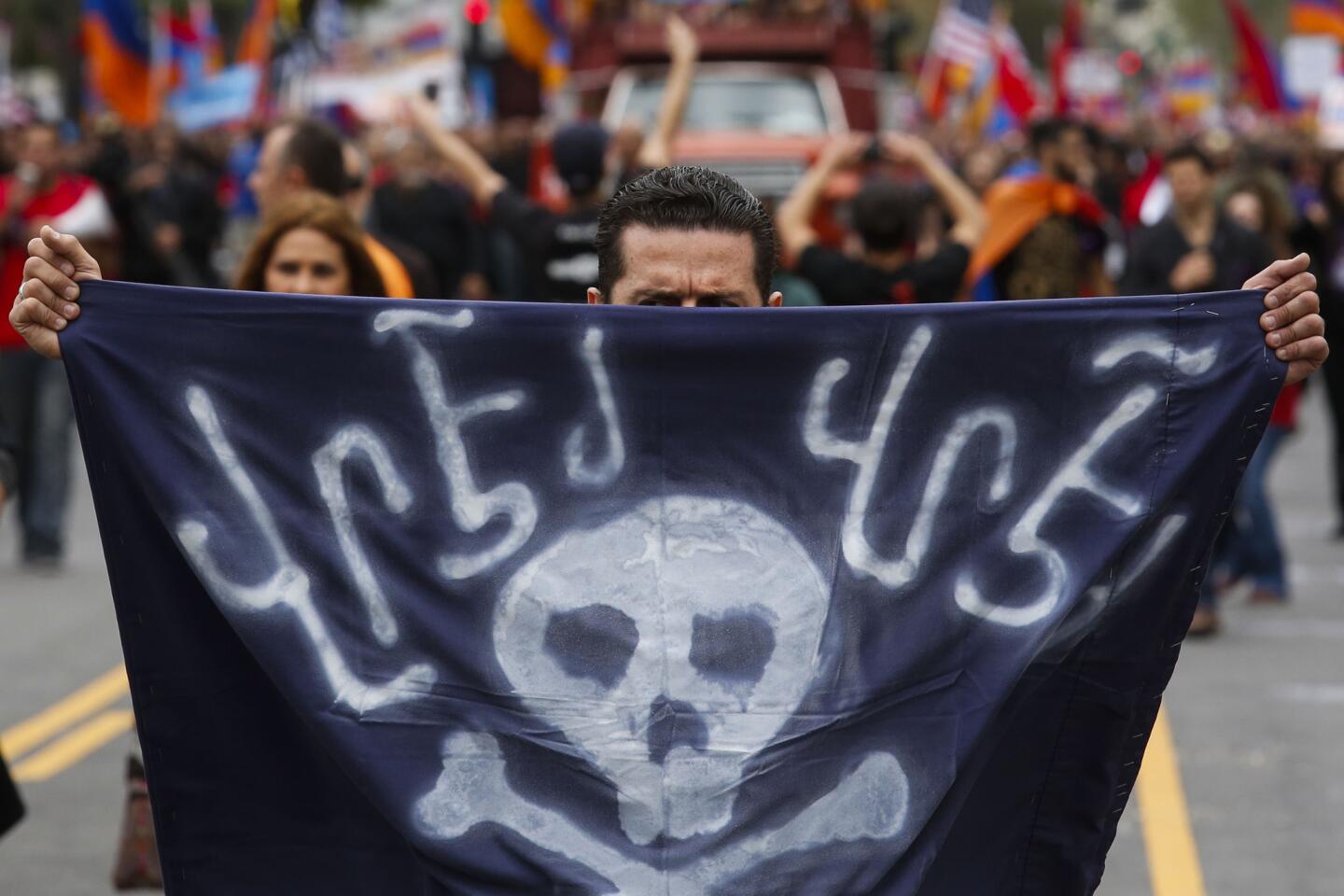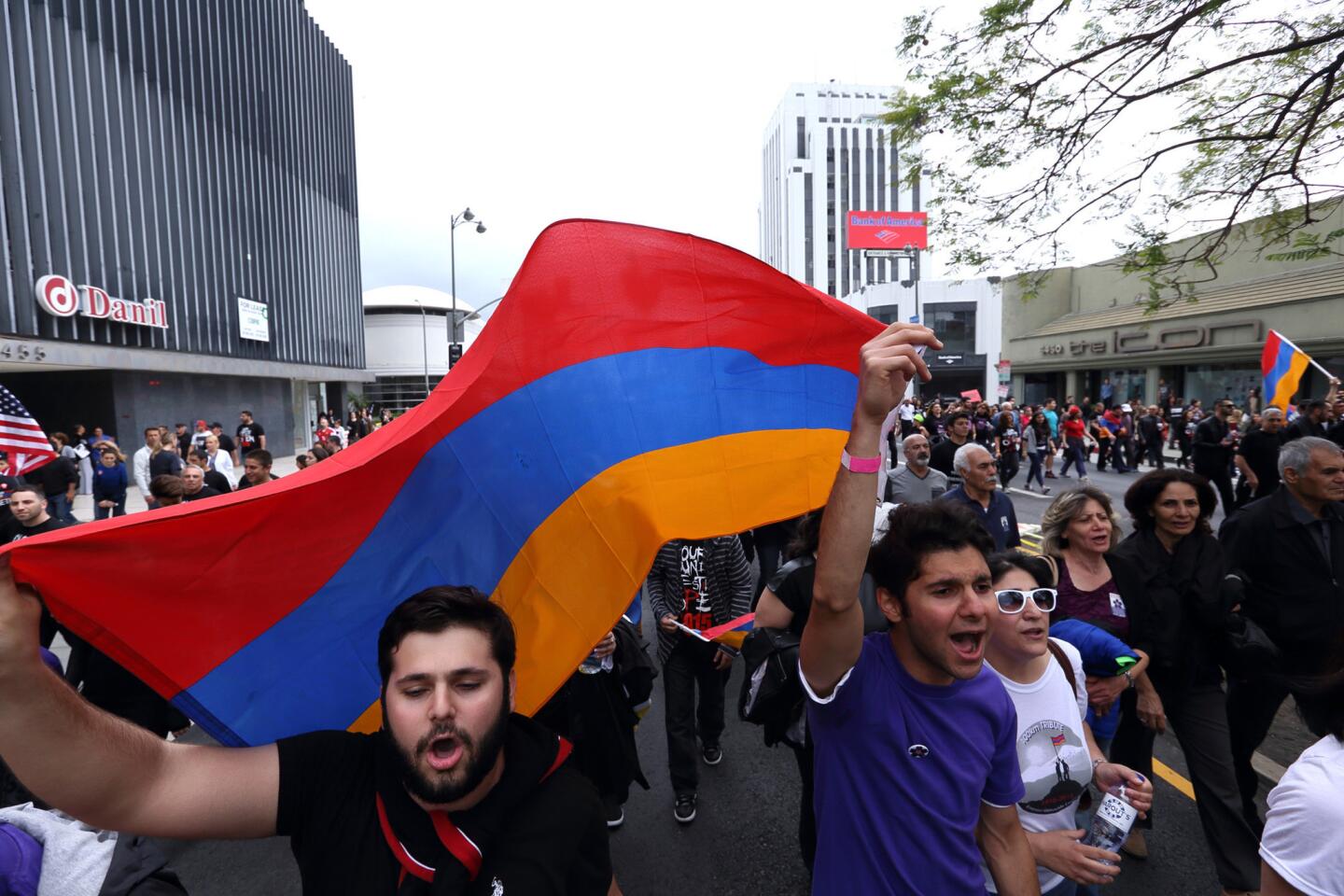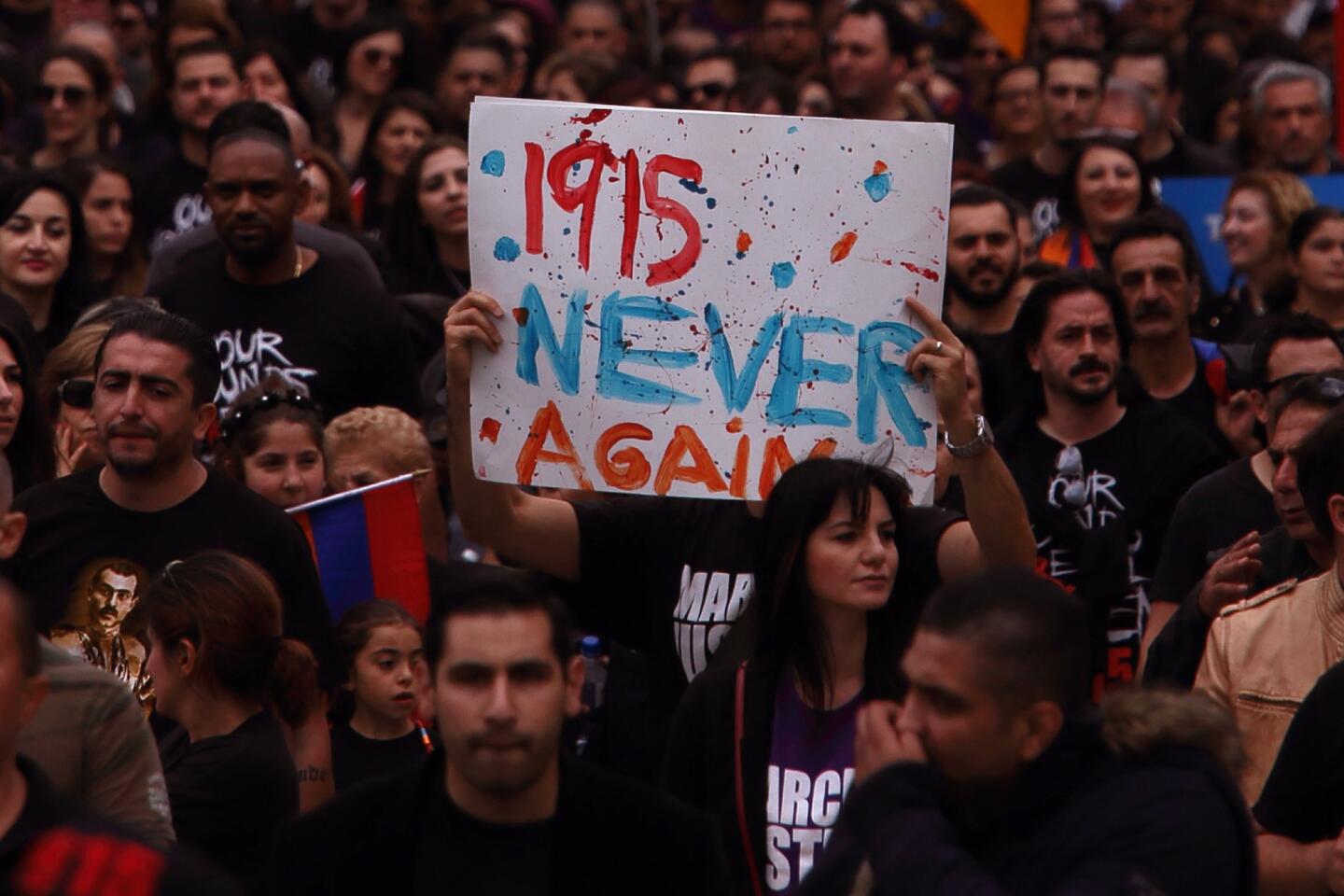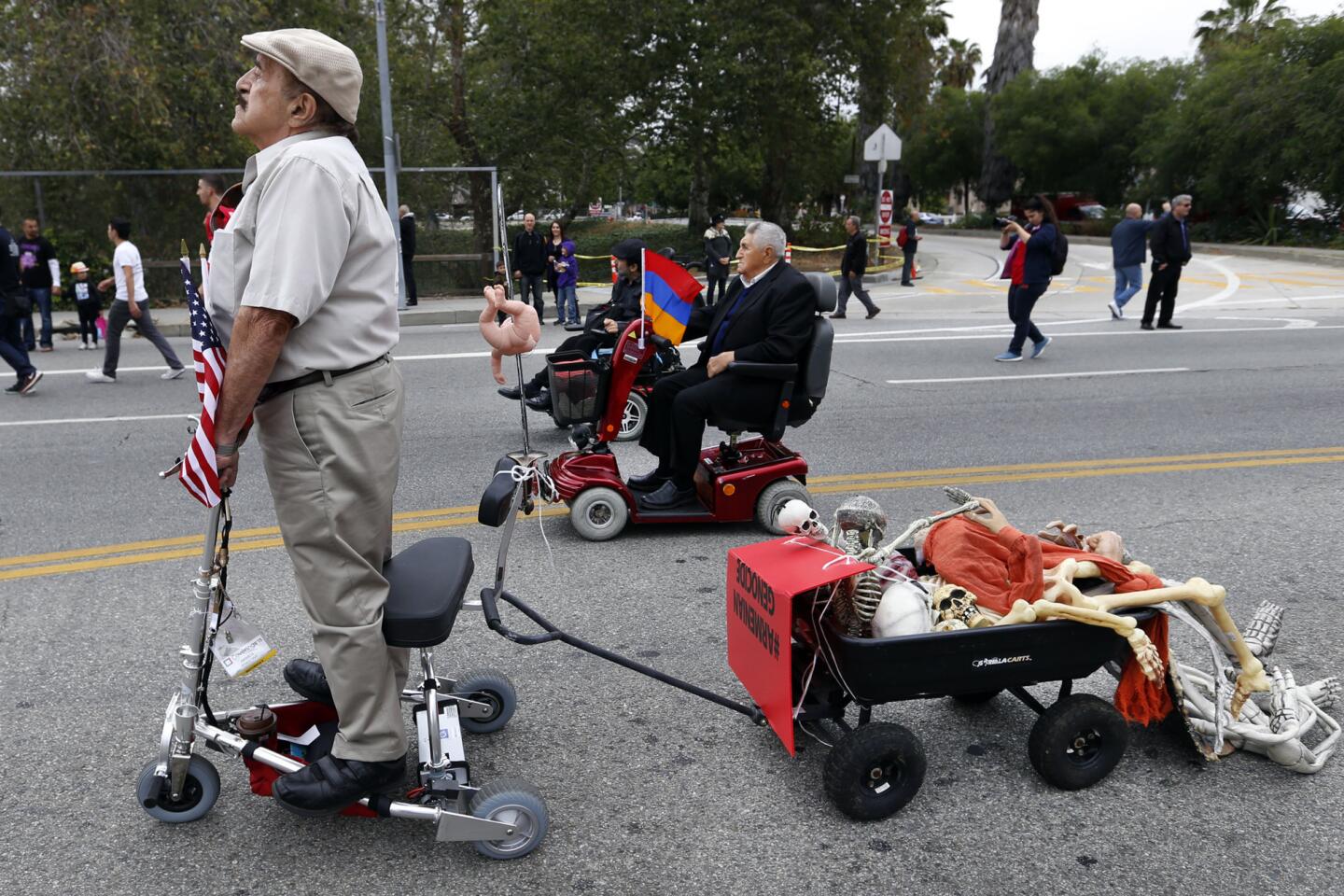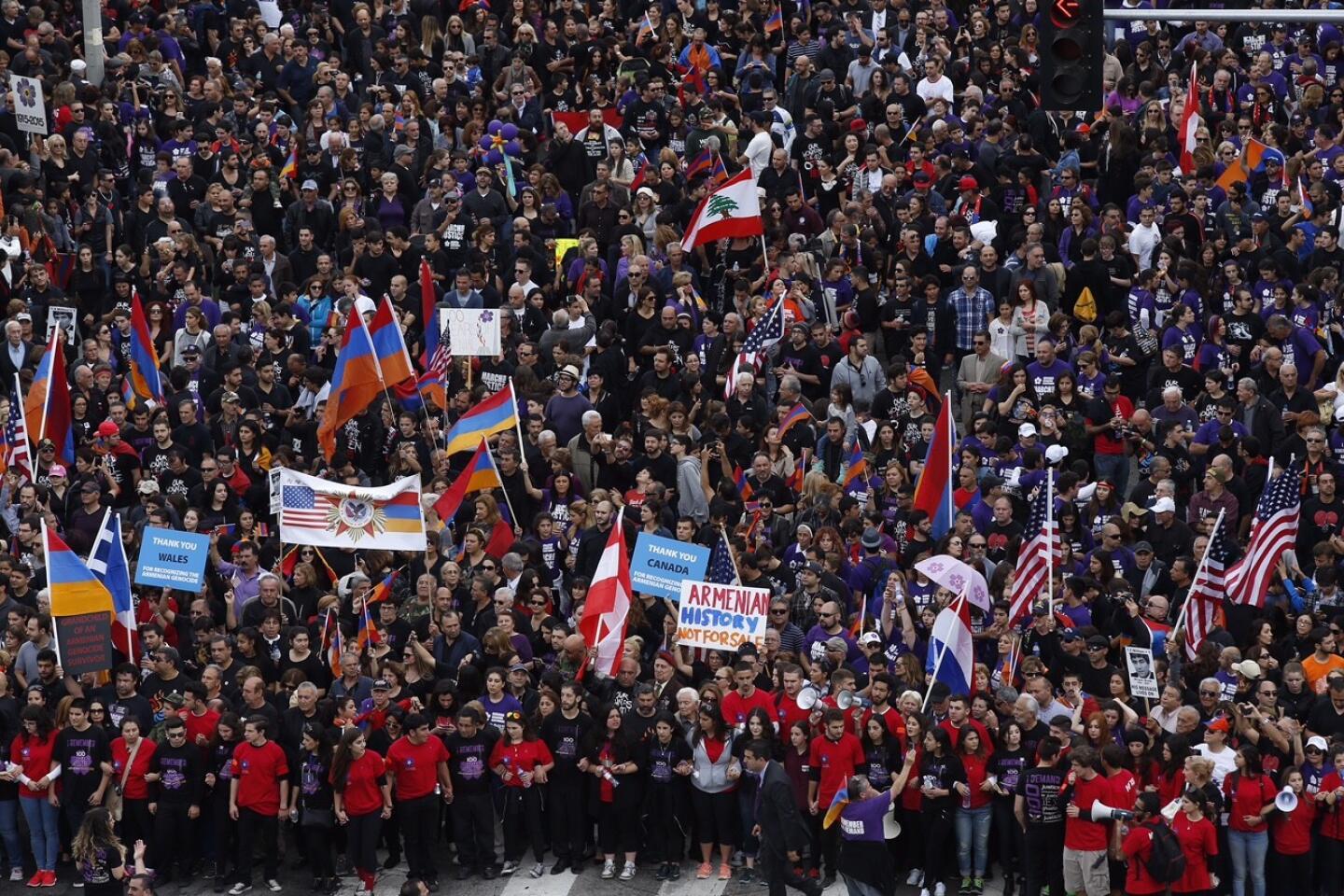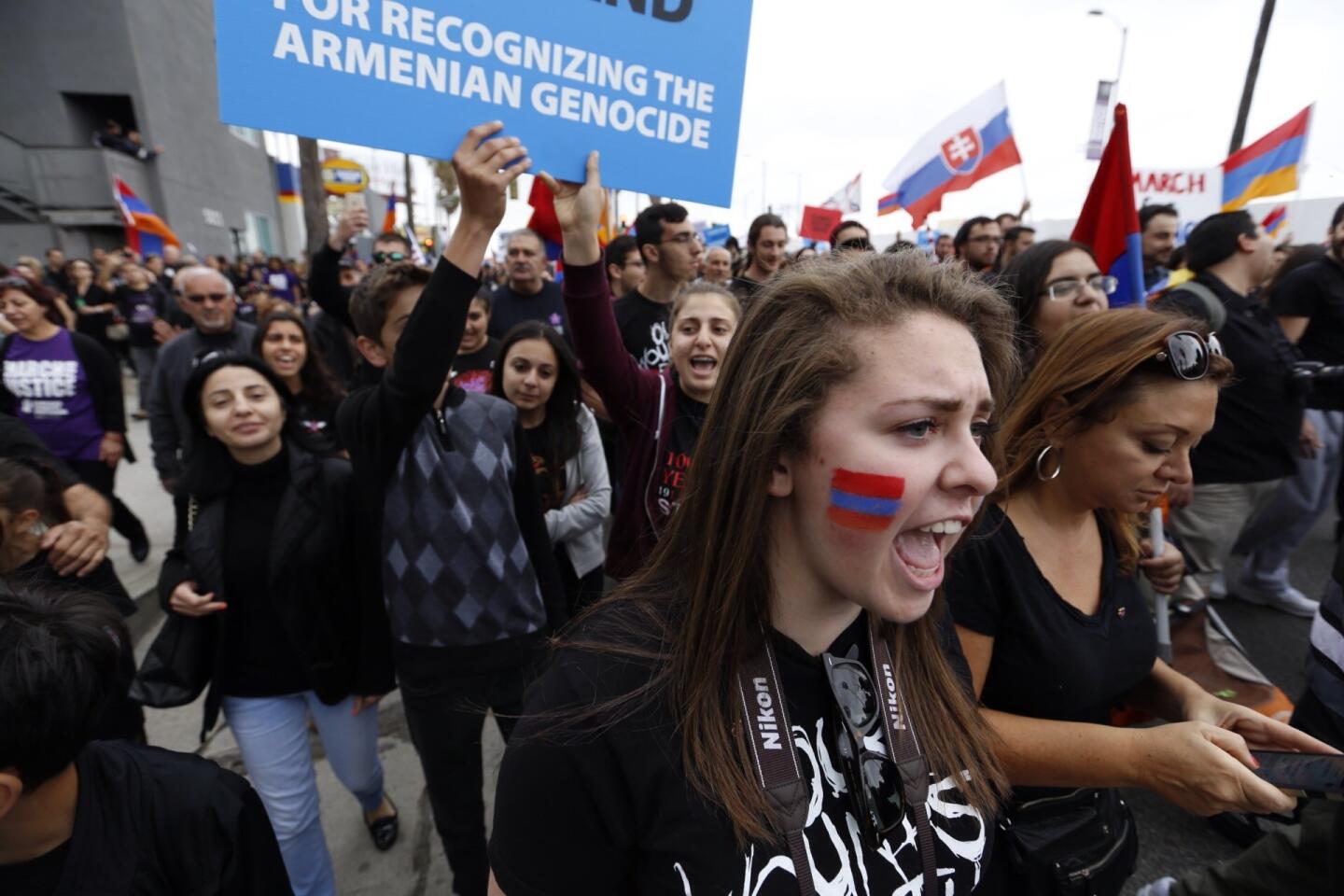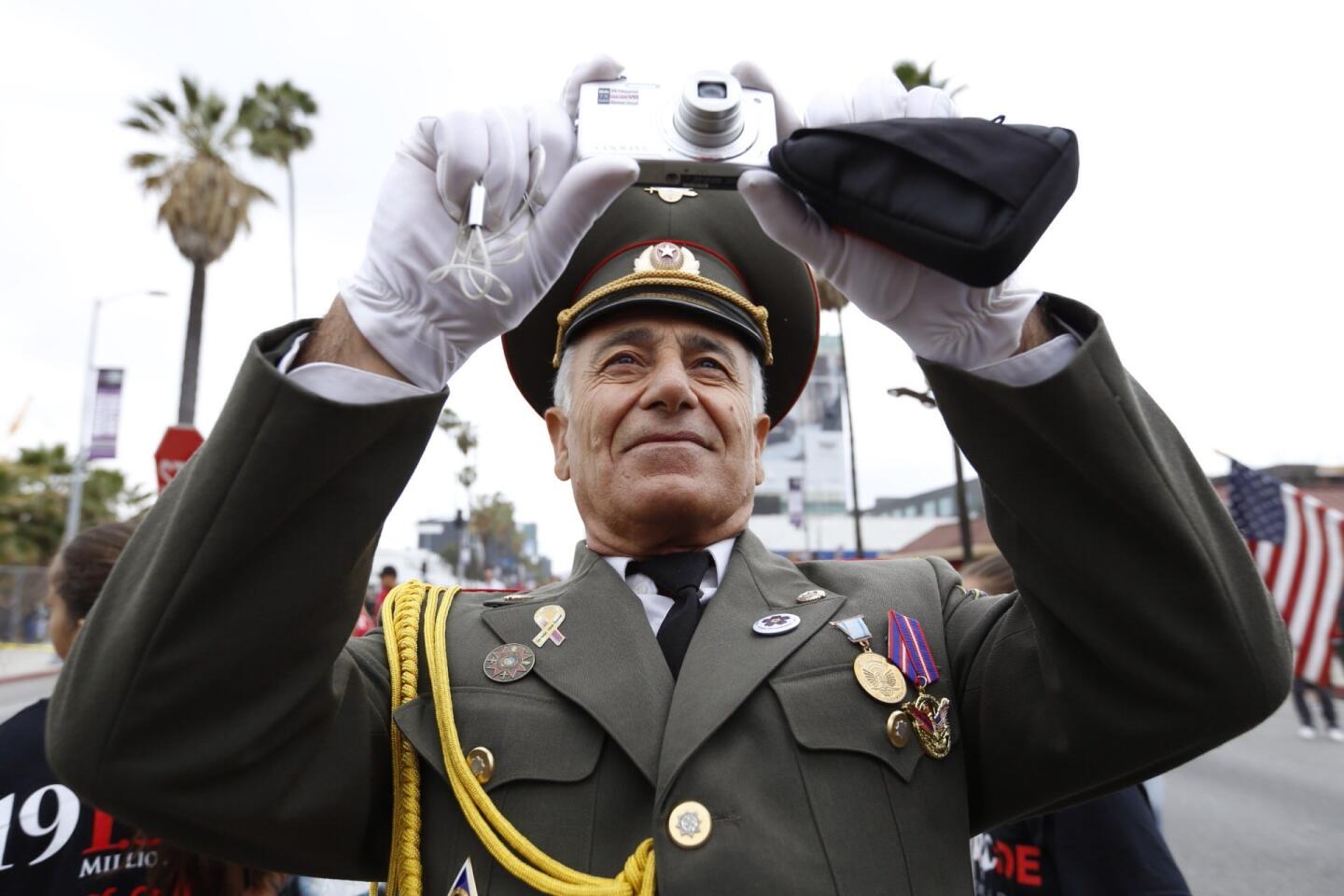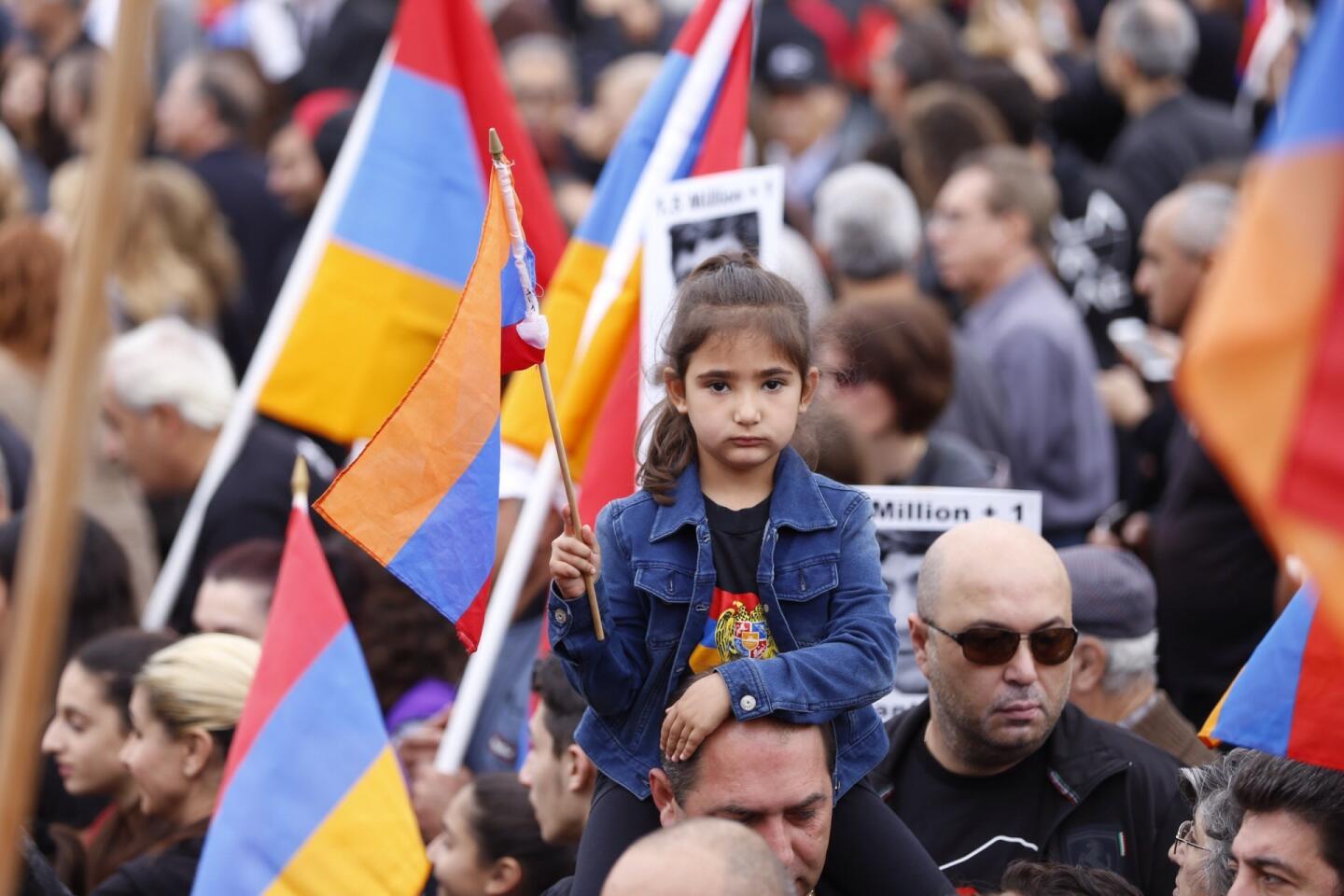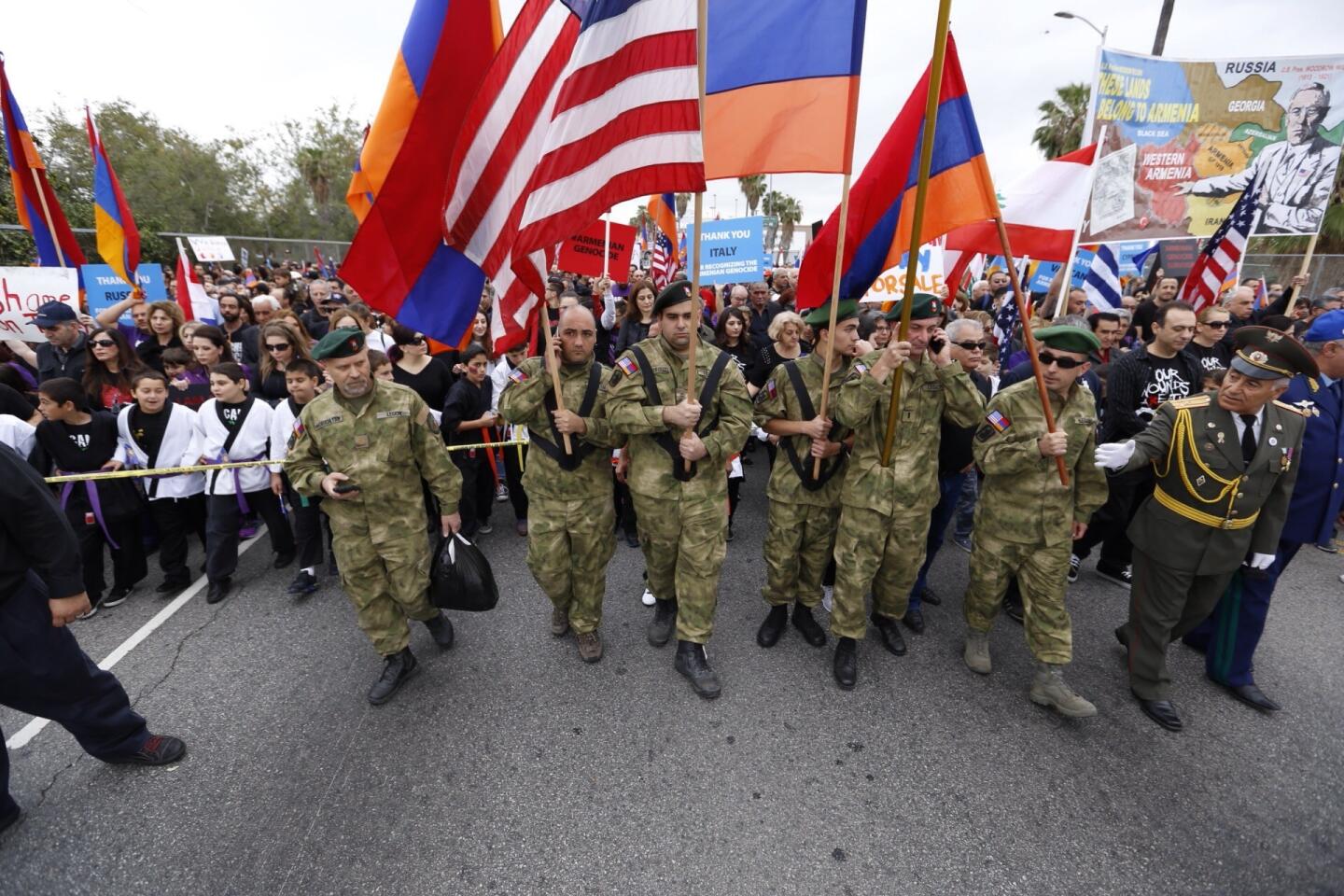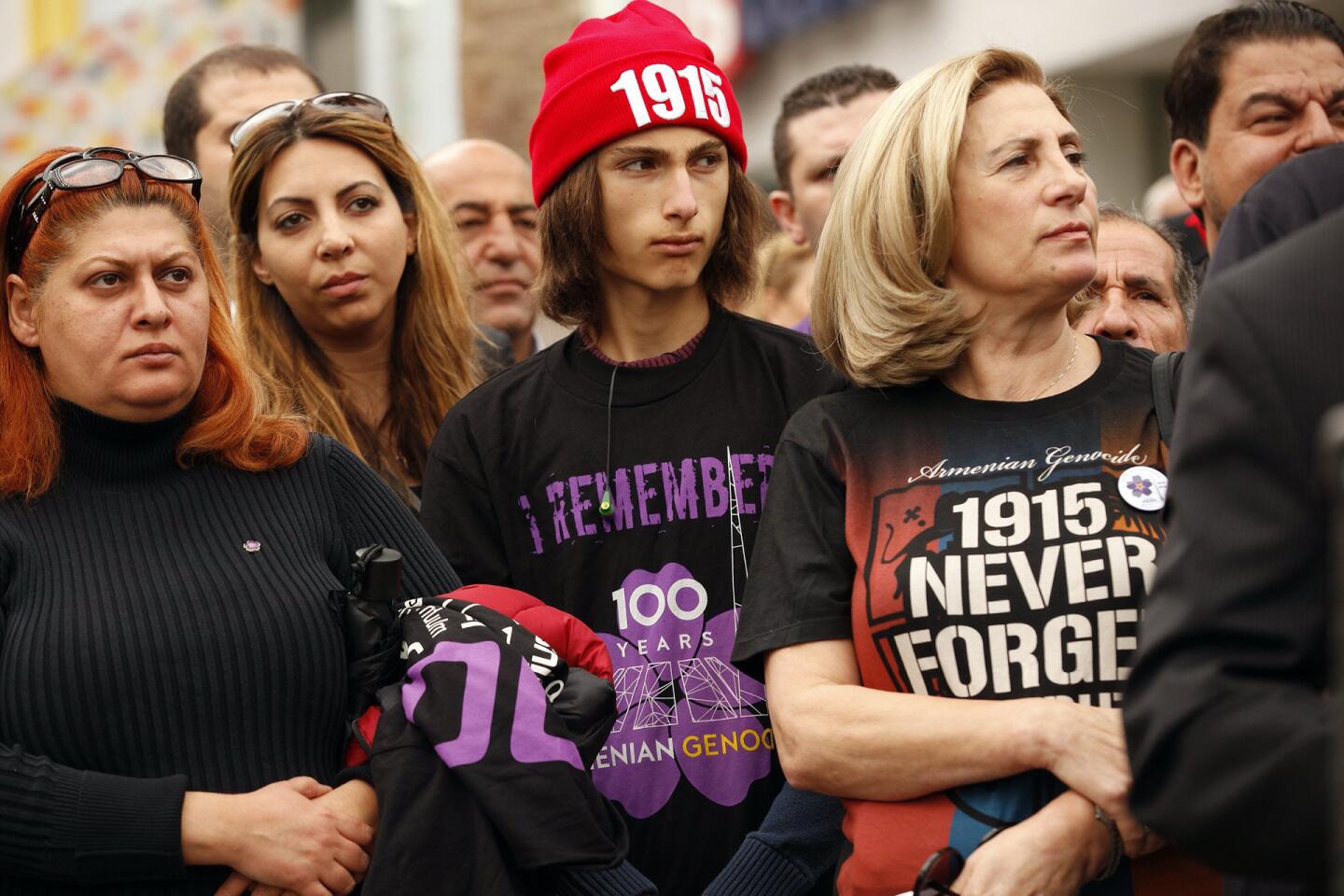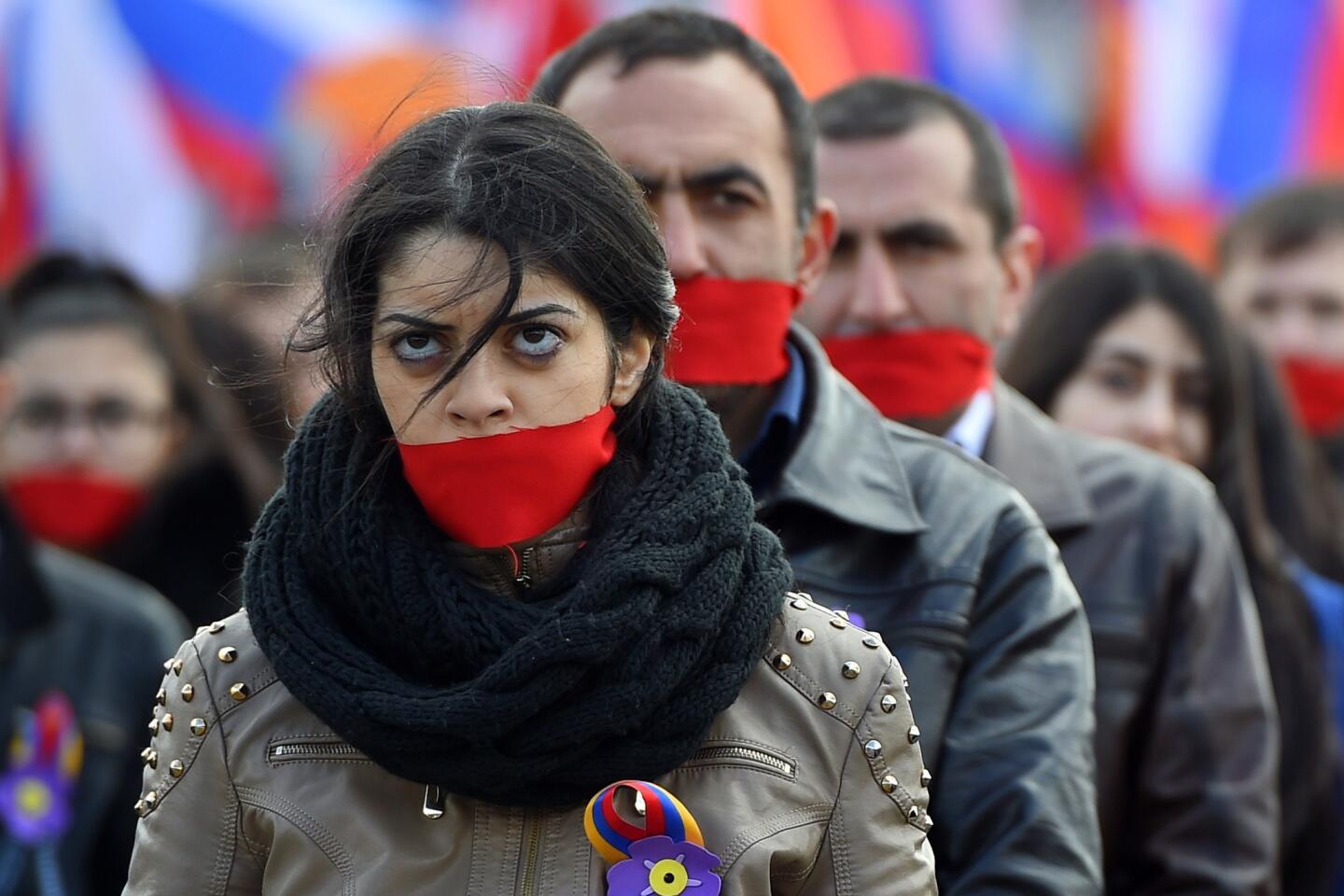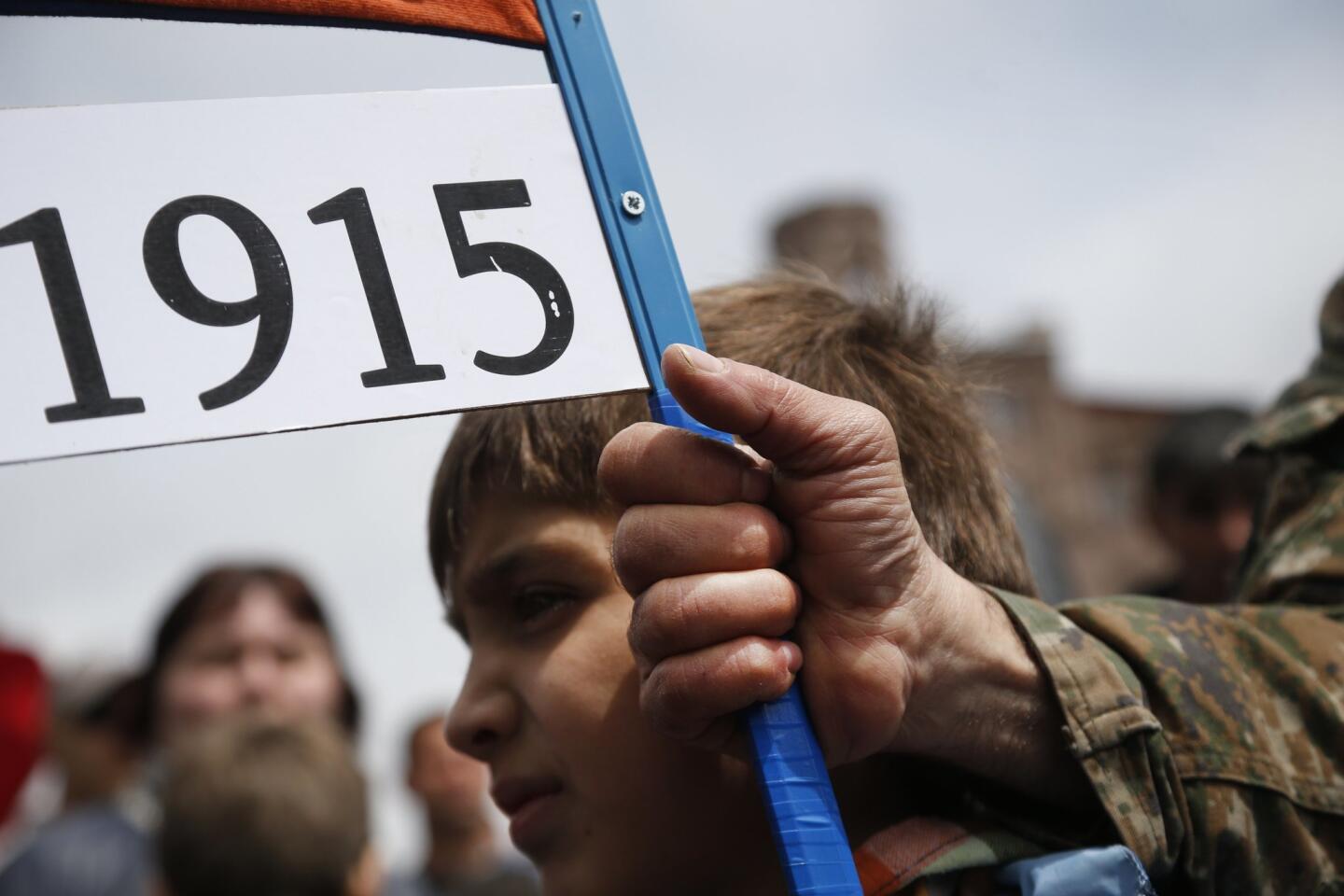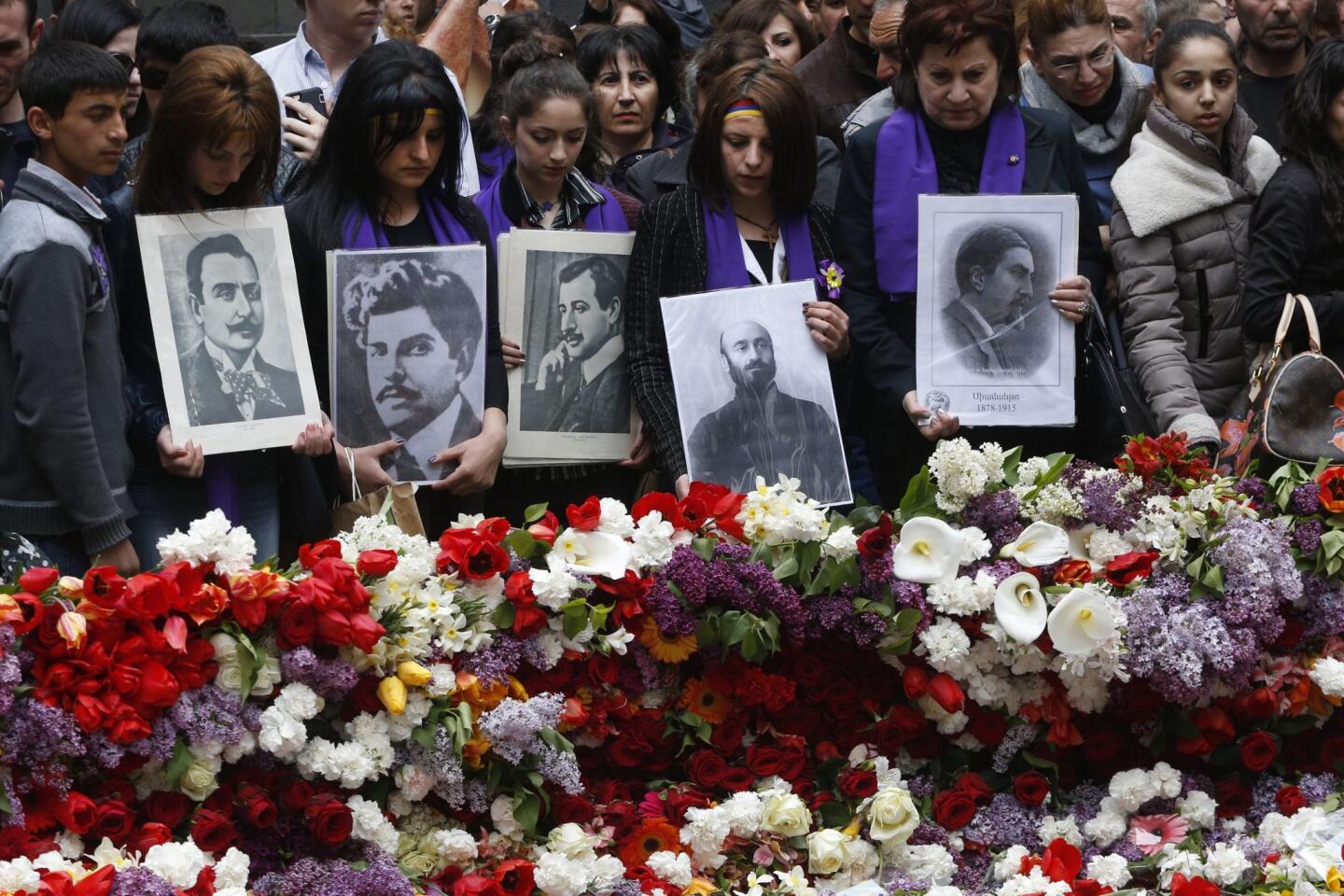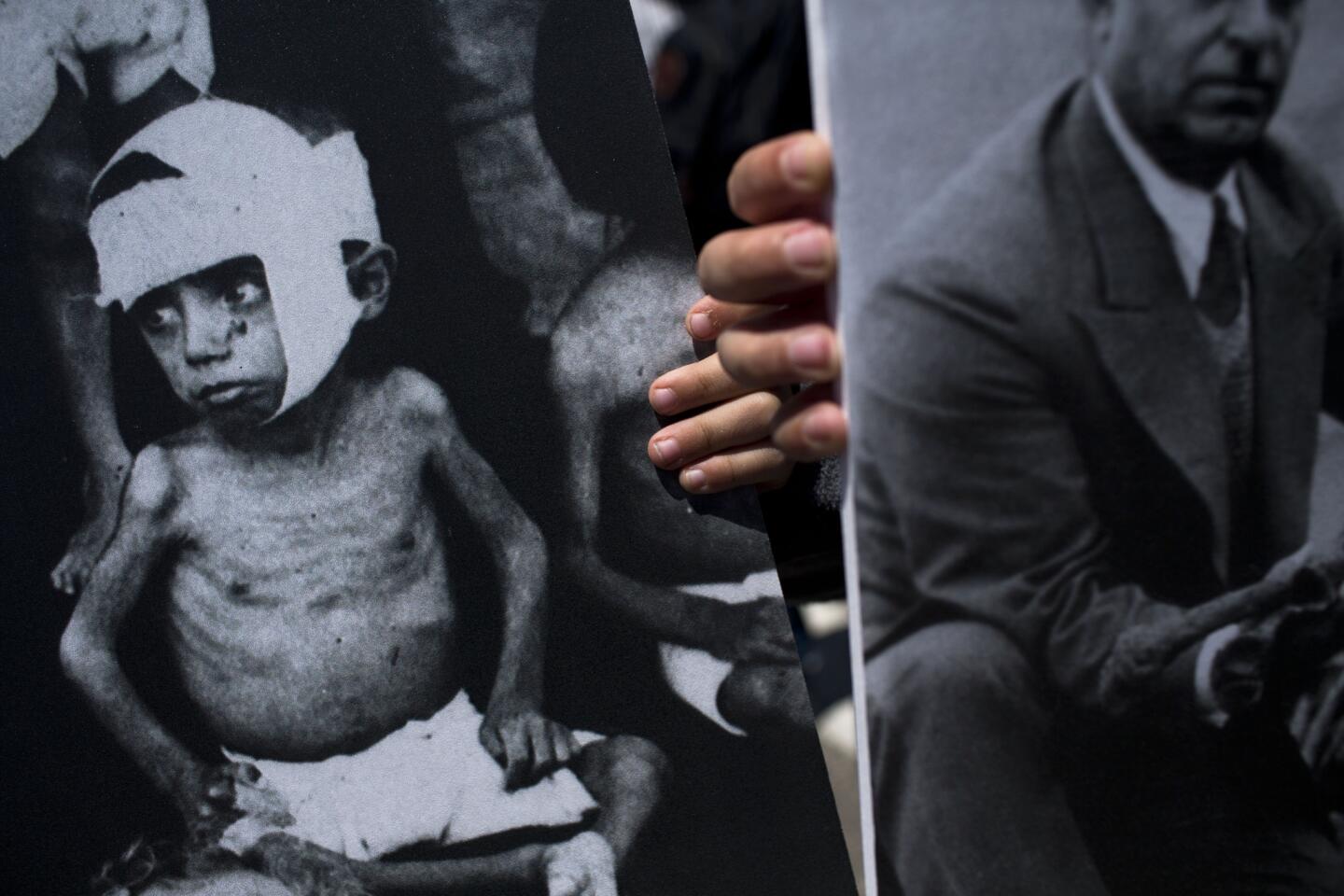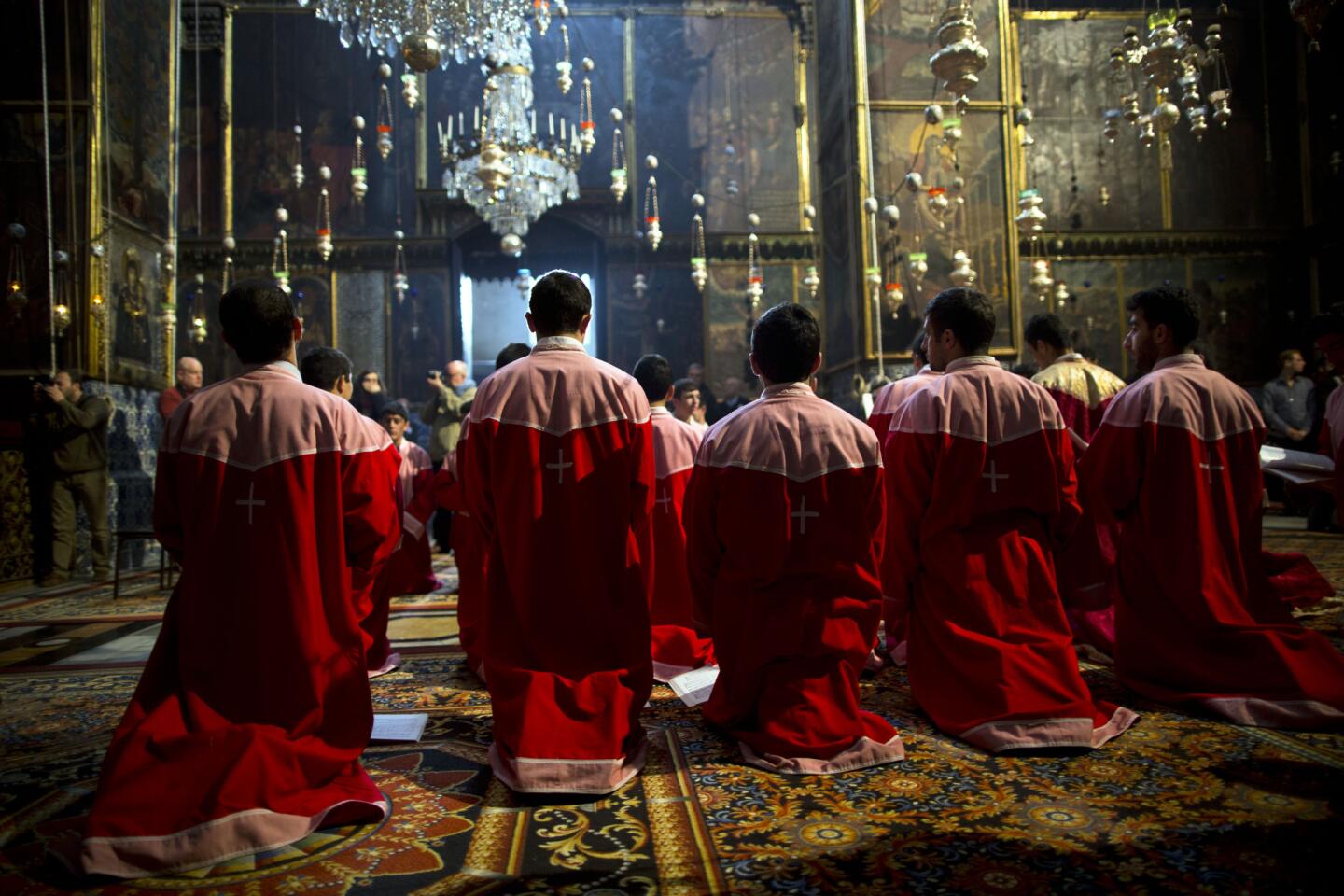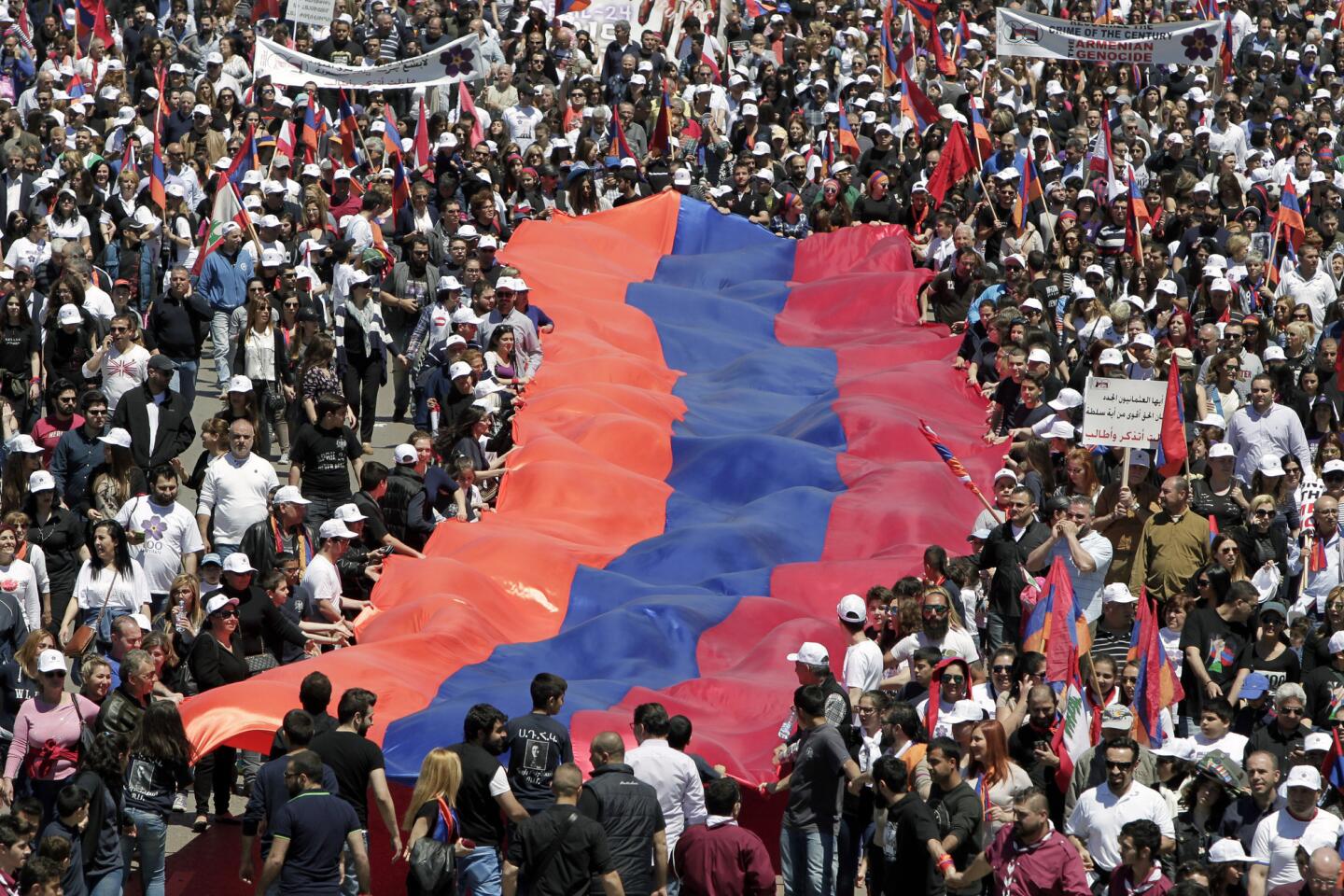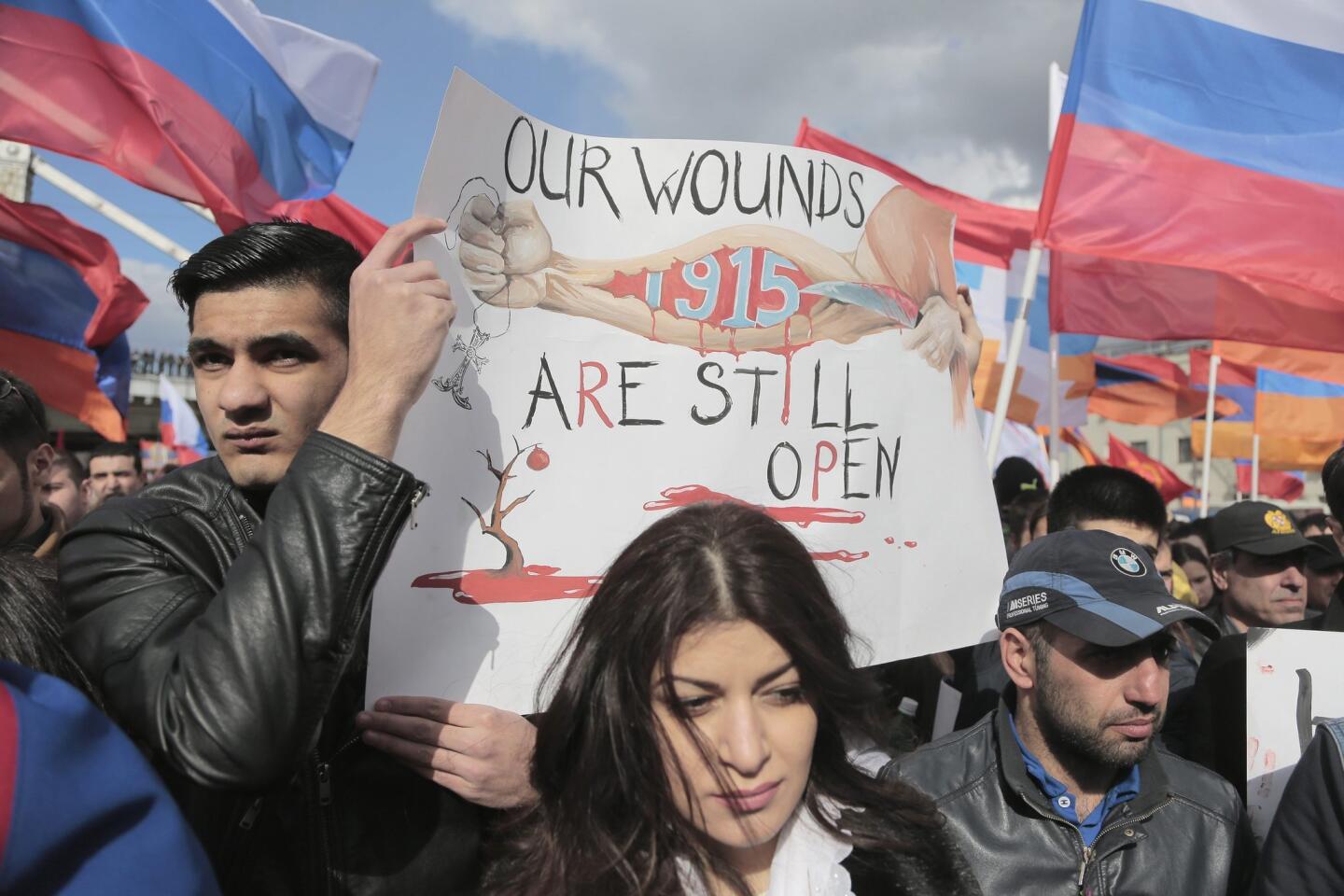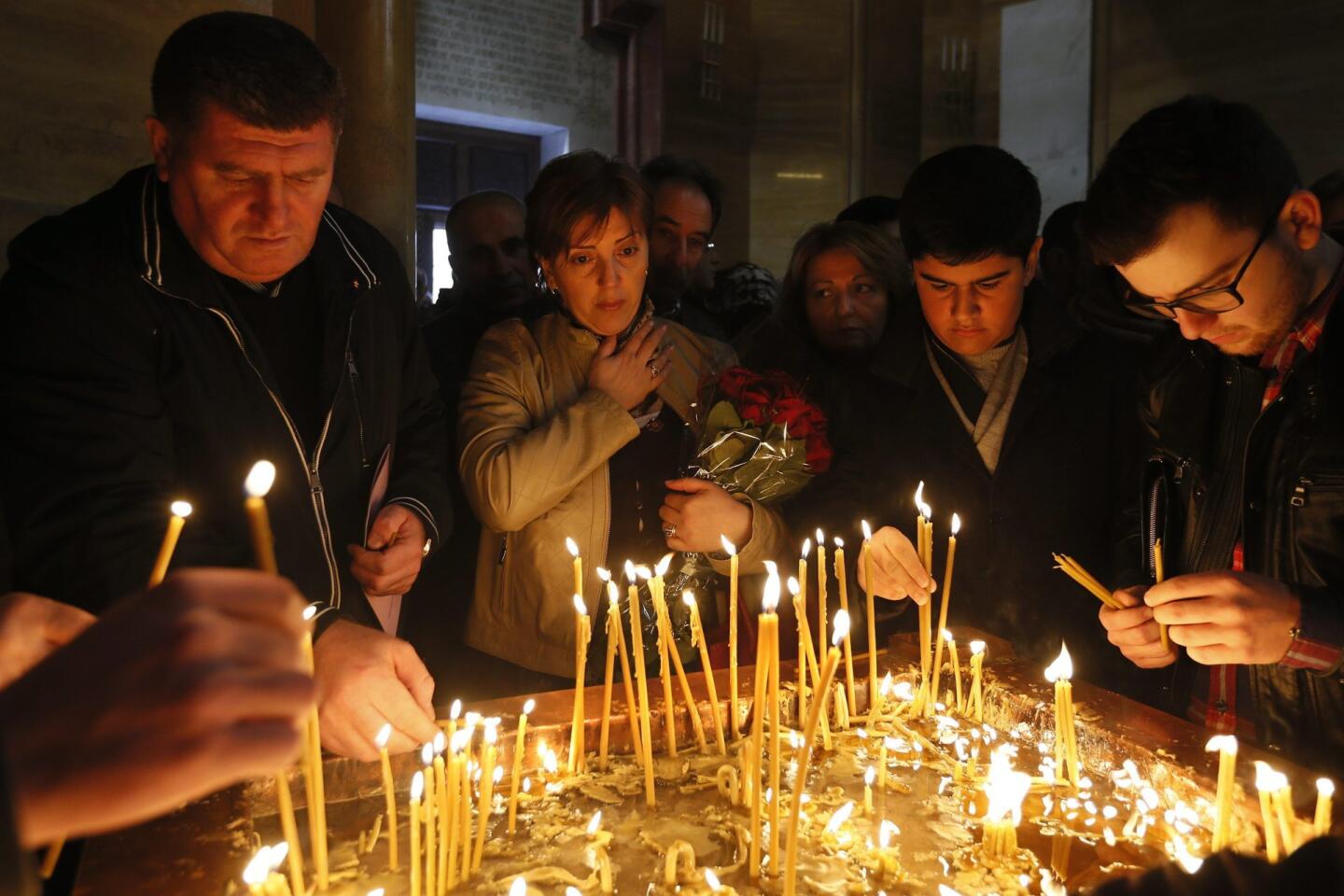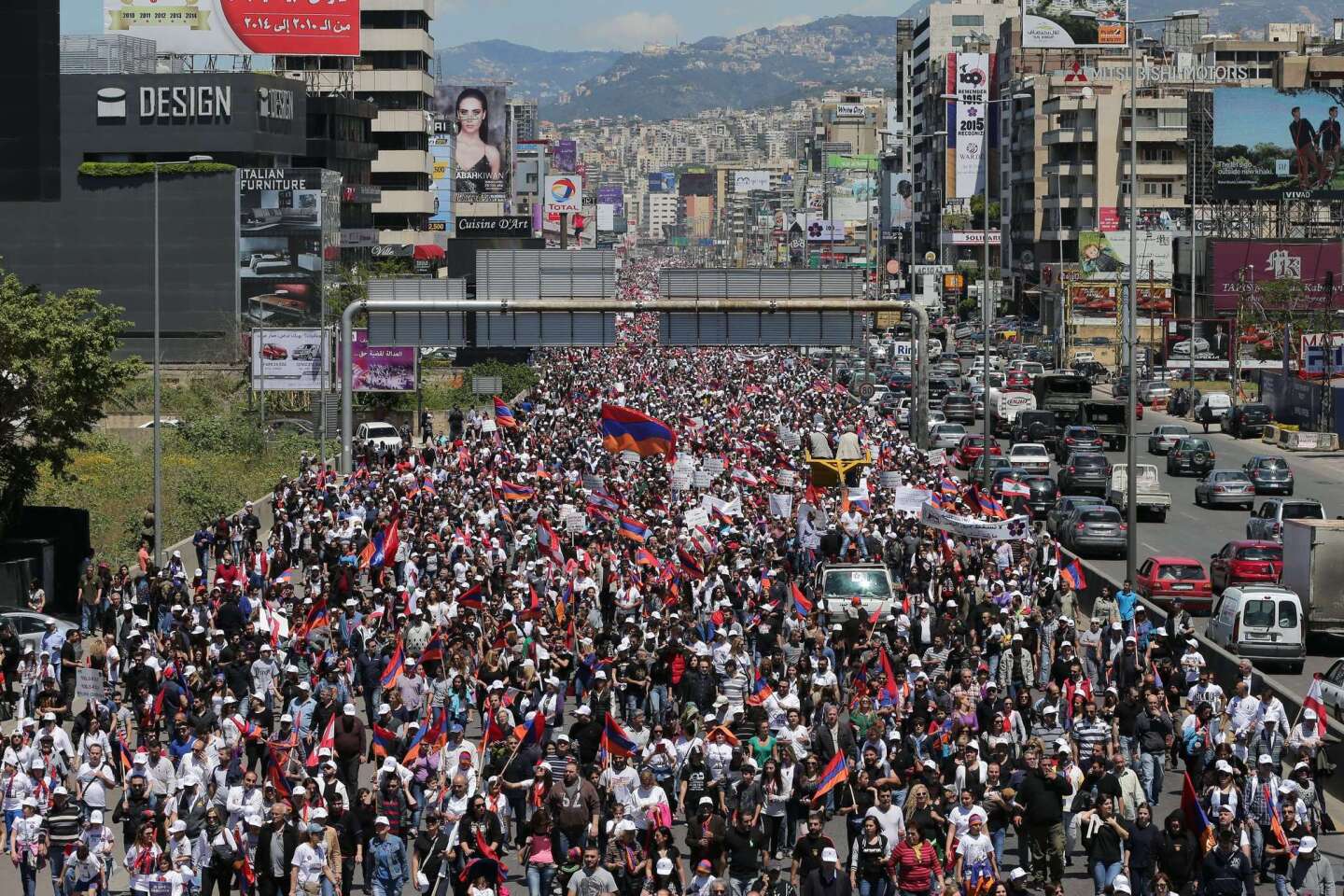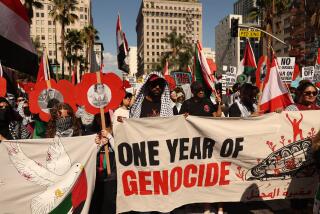Armenian genocide: Massive march ends at Turkish consulate in L.A.
Waving flags and signs and wearing purple, tens of thousands of people marched in Los Angeles on Friday, voicing their common and persistent call for the Turkish government to recognize the deaths of more than 1 million Armenians as genocide.
The events marking the centennial of the slayings under the Ottoman Empire included a six-mile march to the Turkish Consulate, speeches and rallies, and provided an affirming but bittersweet experience for those who took part.
“Every single person you see here is connected to the massacre,” said Pasadena resident Sophie Jihanian, 48. “We feel that for 100 years we have hung on, and we have had a small voice, and now that voice is growing.”
SCENES: Commemorations take place worldwide
Southern California has long been an expatriate hub for Armenians, with more than 200,000 people of Armenian descent living in Los Angeles County, according to U.S. census data.
Officials on Friday designated the intersection of Hollywood Boulevard and Western Avenue as Armenian Genocide Memorial Square, an area that is part of Little Armenia.
At the dedication, Councilman Paul Krekorian spoke of his great-grandmother receiving a letter about what happened to her brother, a math professor at Euphrates College in eastern Turkey.
FULL COVERAGE: 100th anniversary of Armenian genocide
The brother had been seized by Turkish agents, who pulled the beard from his face. His tongue was cut out and he was left to die.
“For my family and for many of us that are here,” Krekorian said, “we don’t need any help in remembering the Armenian genocide because it is deeply personal to us.”
About 1.2 million Armenians — some estimates put the number at 1.5 million — died from armed conflict, massacres and deportations that started in 1915, according to experts. Armenians regard the massive death toll as part of an organized, orchestrated effort by the Ottoman Turkish government. Historians have characterized what happened as a precursor of — even a model for — genocides that followed, including Adolf Hitler’s systematic slaughter of European Jews.
Turkey disputes that narrative. The local consul general said Friday that the number of deaths has been inflated and that they occurred in the context of the widespread brutality of World War I.
The marchers included Nora Hovsepian, who told of her grandmother, at the age of 9, clinging to a willow branch as her mother and siblings drowned around her. They had thrown themselves into the Euphrates to avoid falling into the hands of the Turks who had just hacked to death the men of the family, she said.
“We all have similar stories,” Hovsepian said. “We all grew up hearing stories from our grandparents who had survived.”
Marchers, some singing traditional songs, created a mesmerizing blur of humanity as they strode through streets west of downtown Los Angeles to reach the Turkish Consulate on Wilshire Boulevard.
Many signs voiced forceful messages: “We Demand Justice” and “Turkey Must Pay.”
Participants also held nearly identical azure signs that thanked various countries for recognizing the Armenian genocide. President Obama has not used the word “genocide” in connection with the massacres since coming to office — and his name was greeted with boos at the ceremony before the march.
Obama’s reluctance to use the word is in apparent deference to Turkey, a key American ally.
The procession was multi-generational, with small children riding atop parents’ shoulders; older women linked arms for balance.
Police estimated the number of participants at more than 100,000 and said there no major security issues. About 30 pro-Turkey demonstrators gathered briefly at the consulate. There was a brief verbal confrontation, and a few eggs and water bottles were tossed.
Numerous events locally and worldwide marked the day, including an event at Cal State Fresno, where hundreds of students congregated at noon as the carillon in the campus clock tower played “The Bells of Peace” for 15 minutes, to represent the year 1915. On Thursday evening, more than 4,000 had assembled to dedicate a new, privately funded Armenian genocide monument on the campus.
“There’s so much light shining on Armenia,” said Tarzana resident and marcher Anna Karapetian, 31. “We waited many, many years for this to happen. It’s a new beginning for us.”
Her 6-year-old daughter, Sofie, proudly sported a purple forget-me-not flower, the official emblem of the 100th Year of Remembrance. She had decorated her sign with a large Armenian flag — and a sketch of a gun with a red X over it.
“The seeds are there,” Karapetian said, referring to the poster and her daughter.
Times staff writers Veronica Rocha and Carla Rivera contributed to this report.
More to Read
Sign up for Essential California
The most important California stories and recommendations in your inbox every morning.
You may occasionally receive promotional content from the Los Angeles Times.
